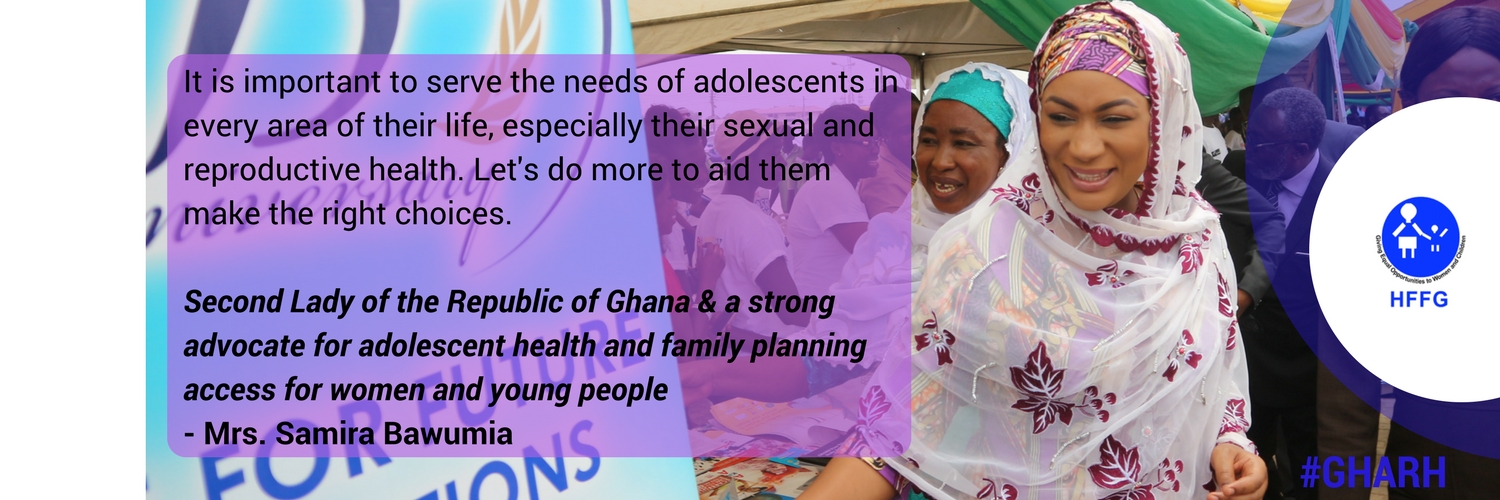The focus area of Sexual Health + Reproductive Health (SHRH) concerns the provision of
quality access to information and health services for women, youth and adolescents,
particularly for family planning; maternal, neonatal and child health; teen mothers and
pregnant teenagers; comprehensive abortion care; sexuality and gender identity and
representation; HIV/AIDSand sexually transmitted infections (STIs); bodily health,
choice, integrity and rights; and menstrual health.
A major success of this thematic area is the creation of peer educators
(in and out of school youth leaders) who through HFFG intervention and mentorship
build community integrated platforms for other young people to discuss SHRH
issues and seek access to key services. This is done through school clubs, youth
forums, drop-in centres, church and mosque discussions, field trip outings,
counseling sessions, entrepreneurial skill trainings, community durbars,
youth-led radio programmes, and events featuring art, drama, film and sports.
Through these action agendas, young people like those involved in the UKAID/Paladium
funded Ghana Adolescent Reproductive Health (GHARH) project, are gaining
opportunities to create new pathways of insight, solidarity, and change within
their communities while also building significant leadership skills that carry
real weight and power.



